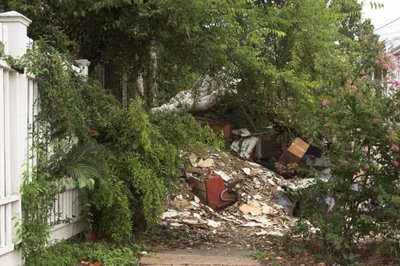Not on Track, Not Moving Forward
As the one-year anniversary of Hurricane Katrina fast approaches, New Orleans lacks leadership from Mayor Ray Nagin and the City Council, said John McIlwain, the senior fellow for housing at the Urban Land Institute.
McIlwain was part of a panel of 50 specialists in urban and postdisaster planning brought in by Nagin's Bring New Orleans Back Commission to help the city create a recovery strategy. The commission largely rejected the institute's advice, particularly its recommendation to rebuild first on higher ground in the less-damaged neighborhoods, a suggestion that turned into a hot debate about the city's footprint and who would be encouraged to return.
...
"It's virtually a city without a city administration and it's worse than ever," McIlwain said. "New Orleans needs Huey Long. You need a politician, a leader that is willing to make tough decisions and articulate to the people why these decisions are made, which means everyone is not going to be happy."
Huey Long? Though he is right about needing a leader, someone who will make decisions. That leader is not Nagin. and Mitch Landrieu ran a weak and timid campaign that did not indicate he would be that leader either. No matter what neighborhoods do, someone or a small group of someones need to pull it all together.
of someones need to pull it all together.
In an e-mail asking for his response to McIlwain's criticism of his administration, Nagin replied: "No comment."
No, really?
"Given the extraordinary circumstances of what happened to your city, you cannot solve this incrementally," said Murphy, who presided over Pittsburgh's revitalization of 1,100 acres of defunct steel mills along the riverfront. "You need to create an agency or an authority that has people who wake up every day and their job is simply to make development happen. You need to build on a scale that in the best of times most cities wouldn't be able to do. You don't need 200 houses a year. You need to do 10,000 houses a year."
An Urban Land Institute spokeswoman said the group's comments about New Orleans' state of recovery are in response to the upcoming one-year anniversary of Hurricane Katrina, and not to Nagin's speech Wednesday, in which the mayor claimed the city was on the right path.
"We are on track," Nagin said. "We're moving forward. No one would have guessed that we would be sitting here today with 250,000 of our residents back in the city of New Orleans living, breathing and helping us to move forward."
Without a change in City Hall's track record, the image of vacant, blighted neighborhoods bleeding from years of neglect is New Orleans' future post-Katrina, McIlwain said.
"We're talking Dresden after World War II. I can take you through parts of North Philadelphia or Detroit or Baltimore and show you what it will look like."

The SBA also takes a hit for being underprepared, doing little about it and moving too slowly on processing applications and getting checks out:
Investigators found that the SBA's new loan processing system was largely designed to match the agency's response to the 1994 Northridge earthquake in California. But that planning underestimated the volume of incoming applications from larger catastrophes such as Katrina, the report found. The agency said it received 420,000 applications from 2005 hurricane victims, compared with 250,000 following the Northridge quake.
Moreover, the report said, SBA failed to stress-test the new system before it was put into action. The agency was also given incorrect computer hardware and ineffective technical support from contractors--resulting in "system instability, outages and slow response times," the report said.
There has been no urgency at any level and a year out, here we wait, still moving refrigerators and blue tarps and boards over windows.










































